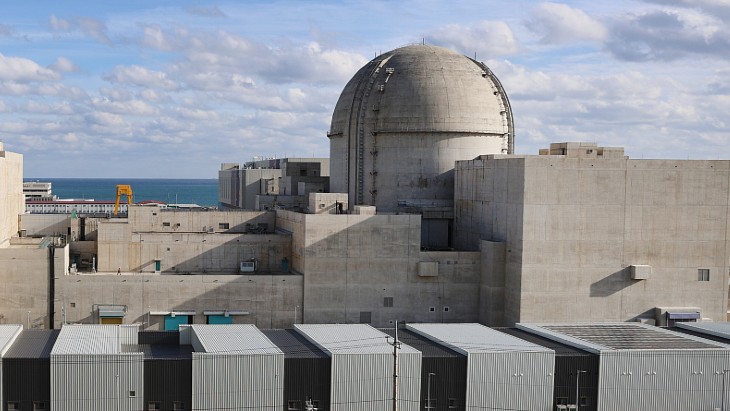In a pressurised water reactor, steam generators transfer reactor core heat from the primary coolant loop into a secondary loop where it can be used to generate electricity. The secondary loop is a closed system in which steam produced in the steam generator is conducted towards the turbine. Once condensed, the water is returned to the steam generator.
A quality deviation in the welding of the main secondary system of the Flamanville EPR in Normandy, northern France, was detected on 21 March last year during the initial comprehensive inspection, a regulatory requirement prior to the reactor starting up. This inspection includes an examination of the welds in the primary and secondary systems, and allows an initial reference state of the plant to be established before it begins operating. Further deviations in secondary system welds were subsequently detected.
Last July, EDF said a total of 33 welds had been found to have quality deficiencies and will be repaired. A further 20 welds will be redone, even though they do not have any defects, it added. At that time, EDF revised its start-up schedule for the Flamanville EPR. Hot functional tests - which involve checking the equipment under similar temperature and pressure conditions to those under which it will operate - had been due to start that month, but would now begin before the end 2018, EDF said. The loading of fuel into the unit's core was rescheduled to late-2019 instead of late-2018. The company also raised the target construction costs for the plant from EUR10.5 billion (USD11.9 billion) to EUR10.9 billion (at the 2015 rate, excluding interim interest).
At the Autorité de Sûreté Nucléaire's (ASN's) annual review of nuclear safety on 29 January, the regulator warned that start-up of the reactor could be further delayed if certain weldings need to be replaced. Eight welds on pipes in the reactor's main secondary system, located in hard-to-access areas, are under investigation.
ASN chairman Bernard Doroszczuk said the regulator would issue a statement in May concerning the validation programme on the welds. "If it turns out that the eight welds in the reactor containment building structure also need replacing then it will no longer be possible to meet the deadline," he said.
EDF said it will "ensure that ASN is provided with all the information required in order for them to examine the files and rule on this validation programme." Once ASN has published its ruling, EDF will issue a detailed progress update on the Flamanville EPR, including the schedule and the cost.
The company noted, "The teams from EDF and its industrial partners meanwhile remain fully mobilised to complete the loading of nuclear fuel during the fourth quarter of 2019 under target construction costs for EDF at the commissioning date kept at EUR10.9 billion."
Construction work began in December 2007 on the 1650 MWe unit at the Flamanville site in Normandy - where two reactors have been operating since 1986 and 1987. The EPR reactor was originally expected to start commercial operation in 2013.
Cold functional tests - which verify the leak-tightness of the primary circuit - began at Flamanville 3 in December 2017 and were completed the following month. Testing of the reactor building to confirm its airtightness was completed last April. Hot functional tests - which involve checking the equipment under similar temperature and pressure conditions to those under which it will operate - had originally been due to start in July, but were later put back to the end of 2018. Earlier this month, EDF said these tests will now begin in February.
In December, unit 1 of the Taishan plant in China's Guangdong province became the first EPR to enter commercial operation. Taishan 2 is scheduled to begin commercial operation this year. Olkiluoto 3 in Finland, the first-of-a-kind EPR, has completed hot functional tests and is preparing to load fuel. Two EPR units are also under construction at the Hinkley Point C project in Somerset, UK.

.jpg)



_72306.jpg)


_49562.jpg)





